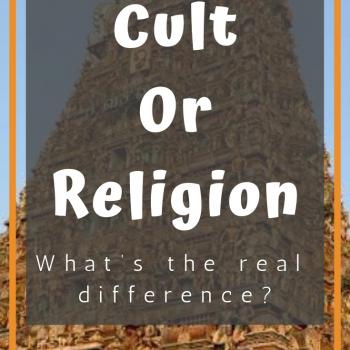Something you’ve probably noticed about me and that I get accused of a lot is moral relativism. And I realize that it is absolutely an issue for me.
I have a lot of trouble declaring anything as definitively right or wrong.
Most people have a boundary between dharmic and adharmic things and it’s a pretty clear line. I’m sure for different people there are varying degrees of clearness.
I find myself often afraid to put myself entirely on one side of a moral issue.

I know, I know. There are so many things that seem absolutely against dharma. And yet. Every time I think I’ve found one, it seems like there’s another layer or complication that gets pointed out to me.
Everyone is the hero in his own mind, so people who do things that I think are adharmic often think they are being righteous and correct. How do I know that my conception of what is dharmic is the correct one? What makes me think I know best?
And so I say nothing and I do nothing. I want to change that. I want to get better about speaking out for justice.
I may not always have a perfect understanding of what is dharmic, but showing indifference in the face of suffering is much worse.
I really relate strongly to the conflict that my colleague here at Patheos writes about in We Must Criticize Islam Responsibly:
“On the one hand, I absolutely want to stand in solidarity with people who suffer under Islamist regimes. No person of conscience can read the stories of the treatment of women by the Taliban, or children by Boko Haram, and fail to feel the spur of conscience pricking them. On the other, I refuse to contribute to the marginalization and oppression of Muslims in this country by making my critique in such a way which promotes demeaning or racist generalizations about Muslims or Arab peoples.”
That’s exactly it.
When I hear about mistreatment of people, when I hear about bad things happening, how do I speak out against that without contributing to unfair negative stereotypes, or presuming to know what is best for everyone, or getting involved in a conflict that is way over my head to understand?
These are questions that I’ve been struggling with since this blog began.
Recently in study group we’ve been reading a passage of the Gita in which Krishna says it is better to act with conviction even if you turn out to be wrong than to do nothing. Doing nothing feels like the best compromise, but it is as the saying goes, if you’re not helping then you’re hurting.
Now at least I have seen that my attitude of not intervening at all isn’t right, so I’m striving to understand what I can and should do about injustice.














